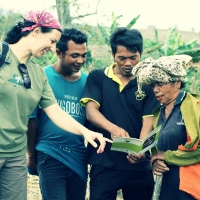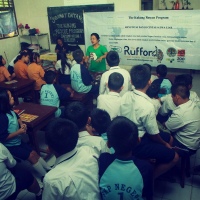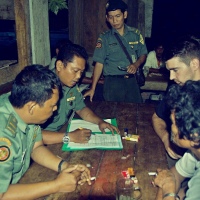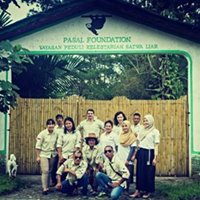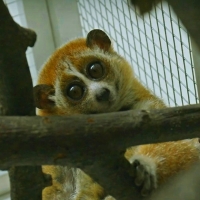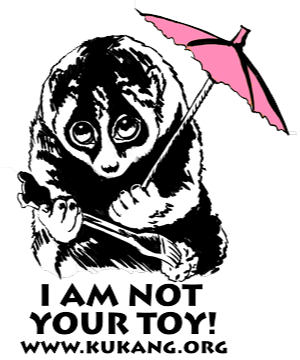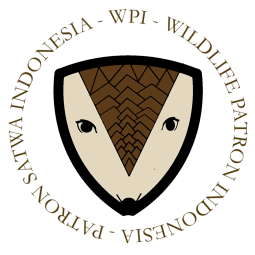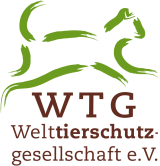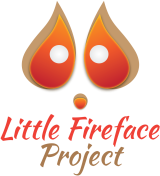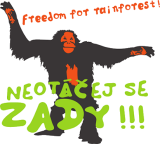Slow lorises are poisonous animals!
On the inner sides of their elbows they have glands producing liquid, yellowish and odorous secretion. This secretion contains a toxin that is activated into poison after it mixes with saliva. That makes slow lorises the only poisonous primates in the world. They use it to protect themselves and their young. This poison is dangerous to humans as well! A bite from a slow loris is very painful and the wound heals very poorly. There have been cases when a slow loris bite even caused death!
Buying or selling slow lorises is illegal.
All slow loris species have been listed since 2007 in Appendix I of CITES convention. Therefore, the trade in wild slow lorises is internationally banned. The situation is similar in most of the countries where the slow loris species naturally occur. For instance, in Indonesia, trading in slow lorises or keeping them can be punished by imprisonment for up to 5 years and by a fine of 100,000,000 IRP or 10,000 USD.
Traders cruelly pull the slow loris teeth.
Before slow lorises get to their new owners, traders very often pull or tear their teeth without any anesthesia. That often leads to infections sometimes causing the death of the animals. The sellers do so to prevent the animals from biting their new owners and to make them more manipulable and “suitable” house pets. If the slow lorises with removed teeth survive, they are condemned to spend the rest of their life in captivity as they will never be able to be released back into the wild.
Smuggling is usually survived by only a low percentage of slow lorises.
Due to their higher price, young use to be taken from their mothers immediately after their trapping and they often die during transport. Slow lorises are often transported in terrible conditions, in overfull and poorly ventilated containers, plastic bottles, etc. Due to the stress during transport, around 30-90% of individuals die. Live animals are often found next to dead bodies of others.
Slow lorises on markets and in households really suffer.
Slow lorises are nocturnal primates, noise and daylight is very stressful for them. In the wild, they travel long distances at night in search for food, thus they suffer a lot when being kept for days in small cages. In the wild, they eat a wide spectrum of food that is hardly replaceable in captivity. Due to poor and monotonous diet provided by traders and new owners they often suffer from nutritional problems.






